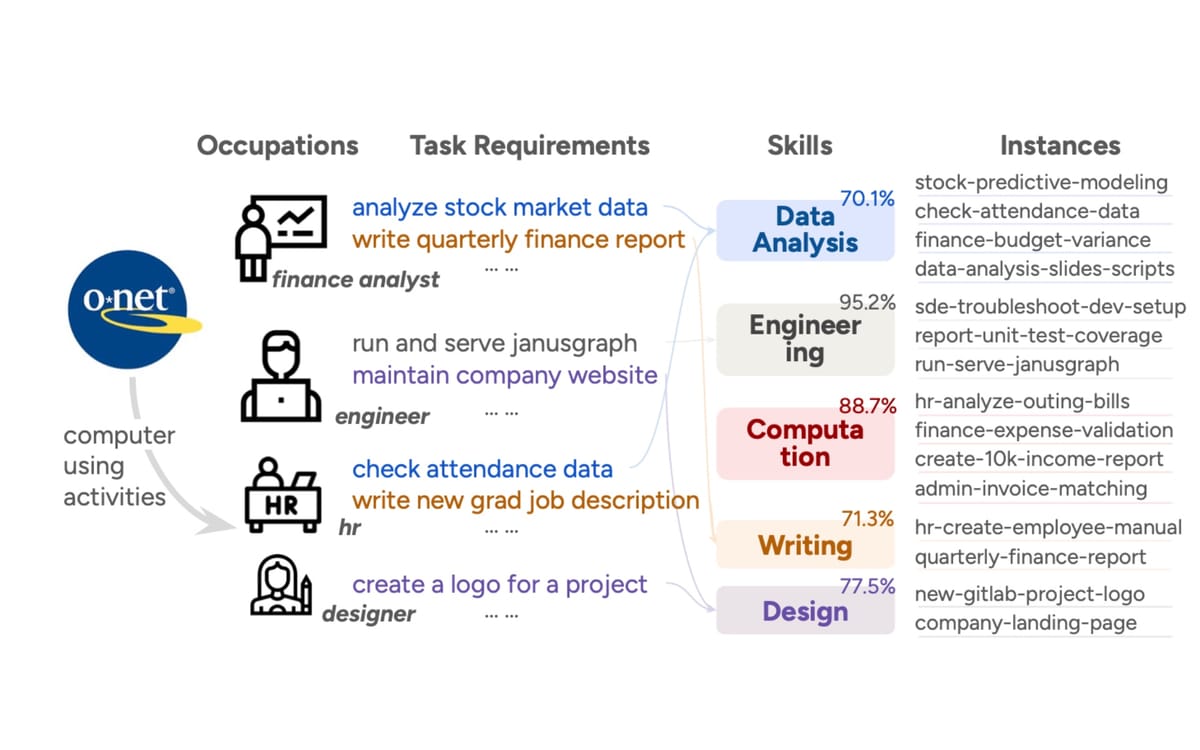A study by Carnegie Mellon and Stanford Universities analyzed AI agents and human workers across five essential work skills, revealing notable differences in efficiency and output quality. The research involved 48 humans and four AI frameworks tackling 16 realistic tasks in areas like data analysis, engineering, and writing. While human workers completed tasks with a success rate 32.5-49.5% higher than AI agents, who favored a largely programmatic approach (93.8% of tasks), agents demonstrated significant operational efficiency, finishing tasks 88.3% faster at 90.4-96.2% lower cost per task. Key findings included agents’ tendencies to fabricate data and struggle with visual tasks, highlighting gaps in their capabilities. The study suggests that tasks easily programmable should be delegated to AI, while humans should manage areas requiring nuanced understanding. This research helps delineate the roles AI can play in future workflows, promoting collaboration between humans and AI.
Source link
